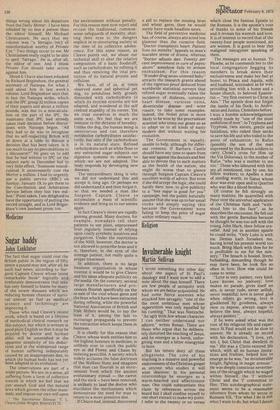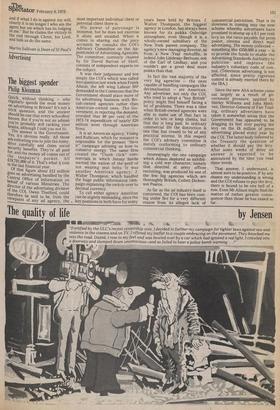Religion
Invulnerable knight
Martin Sullivan
I wrote something the other day about one aspect of St Paul's theology and I want now to add a note about the man himself. There are few people of antiquity with whom we are better acquainted. He had some fierce enemies who attacked him savagely: "one of the the most ambitious men whose superstition was only equalled by his cunning." That was Nietzsche. "An ugly little Jew whose character I can neither understand nor admire," writes Renan. There are those who argue that he deliberately distorted the teaching of Jesus, and he emerges as a harsh, unforgiving man and a bitter misogynist to boot.
But his letters deny all these allegations. The core of his teaching is a massive and powerful endorsement of the Christian gospel as anyone who studies it will soon discover. In his personal relationships he emerges as a warm-hearted and affectionate man. One could substantiate this claim by references across the board but I shall confine myself to one short extract to make my point. I refer to the twenty or so verses which close the famous Epistle to the Romans. It is the apostle's vote of thanks to some of his friends and it reveals his warmth and love. It is of interest to record that of the twenty-four people mentioned, six are women. It is good to hear this maligned misogynist speaking of them.
The messages are so human. To Phoebe, as he commends her to the local congregation begging its members to break down their exclusiveness and make her feel at home; to Prisca and Aquila, wife and husband, tentmaker as he was, providing him with a home and a house church; to beloved Epaenetus — "my first convert to Christ in Asia." The apostle does not forget the lambs of his flock; to Andronicus and Junias, Christians before . I was, a humble acknowledgement readily made by "one of the most ambitious of men"; to Tryphena and Tryphosa, twin sisters, gentle and fastidious, who risked their necks to save his life and who toiled to the point of exhaustion; to Rufus (possibly the son of the man impressed by the Roman soldiers to carry Christ's cross for Him up the Via Dolorosa); to the mother of Rufus "who was a mother to me too." Those who laboured with him are all mentioned, one by one, his fellow workers; to Apelles a man of sterling worth, to Gaius whose door was ever open and to Quartus who was like a blood brother.
Of course he felt strongly on many matters. He quarrelled with Peter over the universal application of the Christian faith and "withstood him to the face", as he describes the encounter. He fell out with the gentle Barnabas because he thought he was too soft with the young John Mark, their fellow-traveller. And yet in another epistle he could write, "Only Luke is with me. Demas hath forsaken me, having loved his present world too much. Bring Mark with thee for he is profitable to me for the ministry." The breach is healed. Stern, forbidding, demanding though he may have been, he took fire so often in love. How else could he come to write: "Love is very patient, very kind. Love knows no jealousy; love makes no parade, gives itself no airs, is never rude, never selfish,. never resentful; love is never glad when others go wrong, love is gladdened by goodness, always slow to expose, always eager to believe the best, always hopeful, always patient."
If he were asked what was the root of his religious life and experience St Paul would not be slow to answer. He is already on record with his declaration, "I love, yet, not I, but Christ that dwelleth in me." His was a Christ-centred life which, with all its human limitations and frailties, helped him to emerge as he was, "an invulnerable knight, fighting in magic armour." He was deeply conscious nevertheless of the struggle which he waged within himself, the 'I' without Christ and the 'I' committed to Him. This autobiographical statement seems to be a reasonable inference from whom he wrote in Romans VII, "For what I do is not what I want to do, but what I detest and if what I do is against my will, clearly it is no longer I who am the agent but sin which has its lodging in me." But he claims the victory in the end through Christ, his Lord, and bids us do the same.
Martin Sullivan is Dean of St Paul's



































 Previous page
Previous page